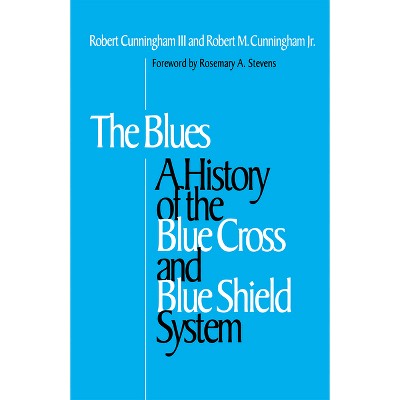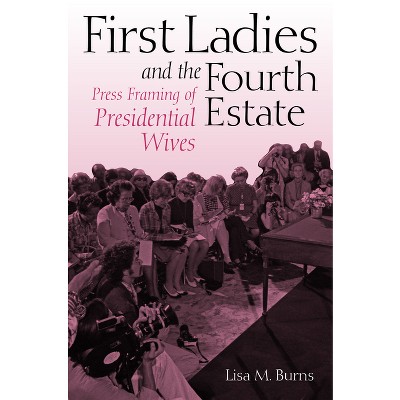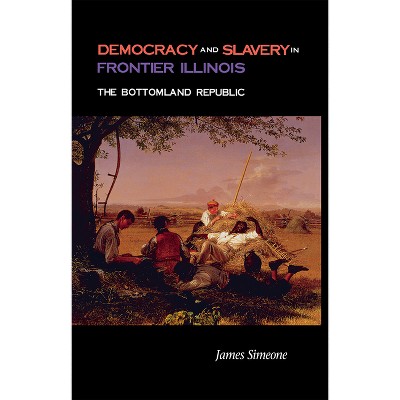Founding Corporate Power in Early National Philadelphia - by Andrew Schocket (Hardcover)

About this item
Highlights
- During its first heady decades, the United States promised to become a fully democratic society with unprecedented liberty and opportunity.
- About the Author: Andrew M. Schocket is Assistant Professor of History at Bowling Green State University.
- 288 Pages
- Business + Money Management, Corporate & Business History
Description
About the Book
During its first heady decades, the United States promised to become a fully democratic society with unprecedented liberty and opportunity. Yet, as political rights spread, a rising elite gained control over the sources of prosperity by means of the institution that has since come to symbolize capitalist America--the corporation. In this study, Andrew M. Schocket analyzes the establishment, growth, and operations of both commercial and municipal corporations in the nation's premier city, Philadelphia.
From the 1780s through the 1820s, members of Philadelphia's privileged class formed corporations in order to consolidate their capital and political influence. By controlling regional transportation networks as well as banks and the municipal water supply, they exploited the ambitions of local farmers, artisans, and entrepreneurs who depended upon corporate services. Meanwhile, corporate insiders managed to insulate their decision making not only from the public but even from the majority of their own stockholders. In short, in this leading commercial city with a reputation for innovation, a corporate aristocracy created a new form of power. At the same time, corporations answered needs that private individuals or partnerships could not--and government, uncertain of its own authority, would not--supply. Resolving the apparent contradiction between the spread of political democracy and the consolidation of economic power, Schocket provocatively argues that corporations helped to generate the relatively diffuse prosperity of the early national period. Though controlled by the few, they offered services that allowed middle-class entrepreneurs to flourish. This mixed legacy has resulted in the continuing ambivalence toward U.S. corporations today.Book Synopsis
During its first heady decades, the United States promised to become a fully democratic society with unprecedented liberty and opportunity. Yet, as political rights spread, a rising elite gained control over the sources of prosperity by means of the institution that has since come to symbolize capitalist America--the corporation. In this study, Andrew M. Schocket analyzes the establishment, growth, and operations of both commercial and municipal corporations in the nation's premier city, Philadelphia.
From the 1780s through the 1820s, members of Philadelphia's privileged class formed corporations in order to consolidate their capital and political influence. By controlling regional transportation networks as well as banks and the municipal water supply, they exploited the ambitions of local farmers, artisans, and entrepreneurs who depended upon corporate services. Meanwhile, corporate insiders managed to insulate their decision-making not only from the public but even from the majority of their own stockholders. In short, in this leading commercial city with a reputation for innovation, a corporate aristocracy created a new form of power.
At the same time, corporations answered needs that private individuals or partnerships could not--and government, uncertain of its own authority, would not--supply. Resolving the apparent contradiction between the spread of political democracy and the consolidation of economic power, Schocket provocatively argues that corporations helped to generate the relatively diffuse prosperity of the early national period. Though controlled by the few, they offered services that allowed middle-class entrepreneurs to flourish. This mixed legacy has resulted in the continuing ambivalence toward U.S. corporations today.
Review Quotes
Carefully researched and well-written. The refreshing tone of this entertaining and insightful book cannot be overstated. It should surely find a place on reading lists of business historians and students of entrepreneurship for years to come.
-- "Journal of Economic History"In this deeply researched, richly detailed case study of the origins of corporate power in the new nation's "first city," Andrew M. Schocket deftly unravels an enigma that has plagued historians and observers of the early republic since Alexis de Tocqueville disembarked in Philadelphia in 1831.
-- "The Journal of American History"This intelligent book considers a central issue of the early American republic and U.S. history: why was political democratization coeval with the consolidation of economic power by a relatively small group of elites?
-- "American Historical Review"About the Author
Andrew M. Schocket is Assistant Professor of History at Bowling Green State University.
Shipping details
Return details
Trending Non-Fiction











